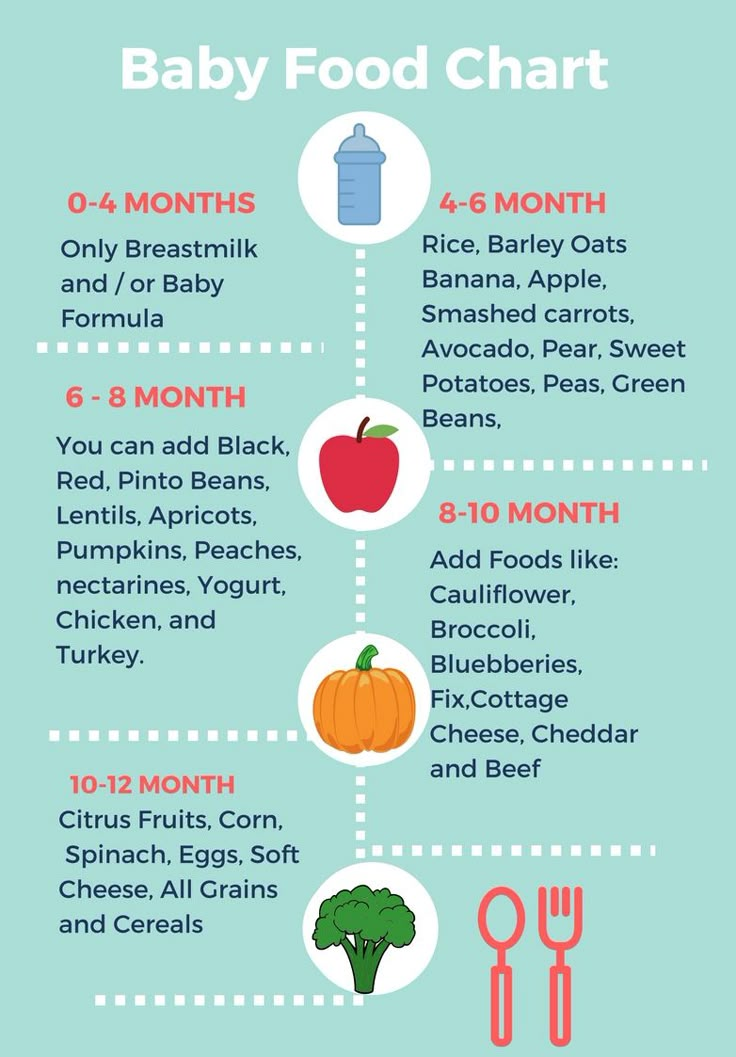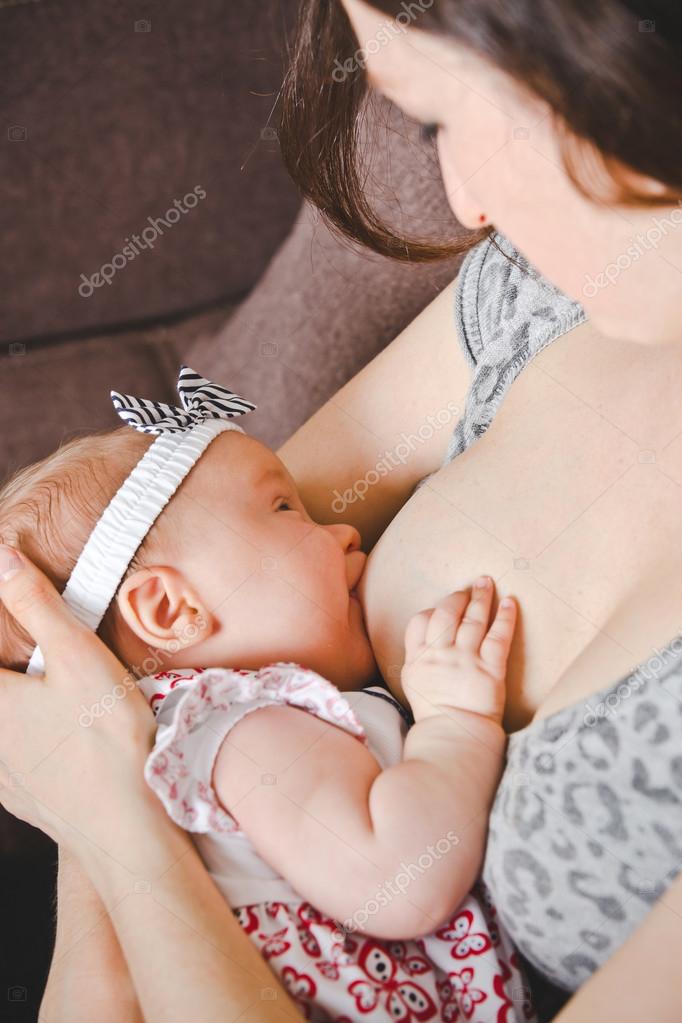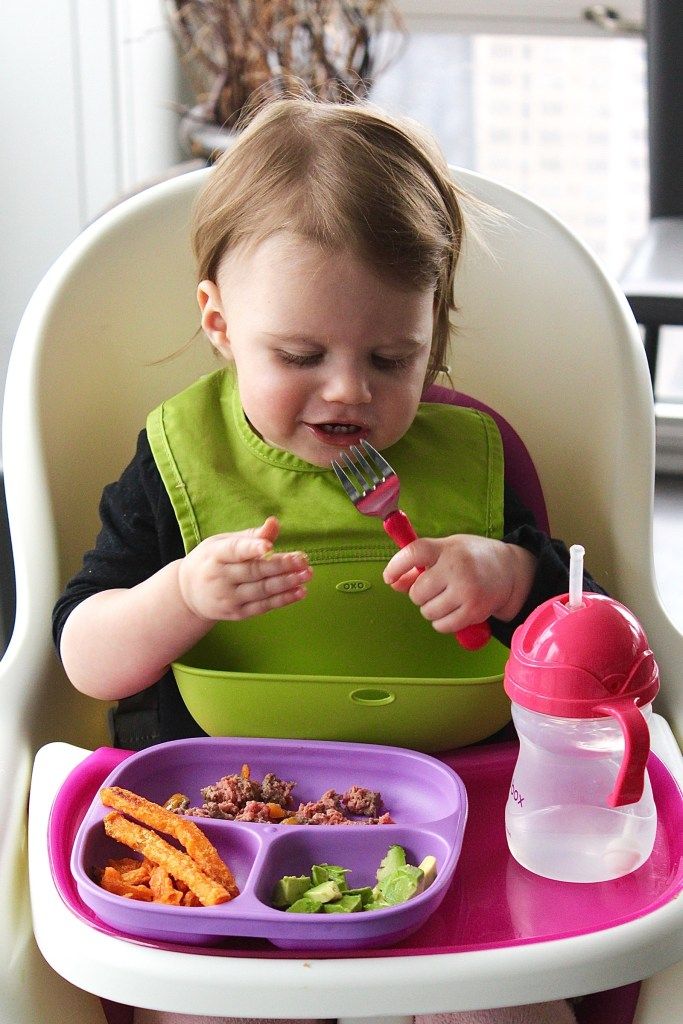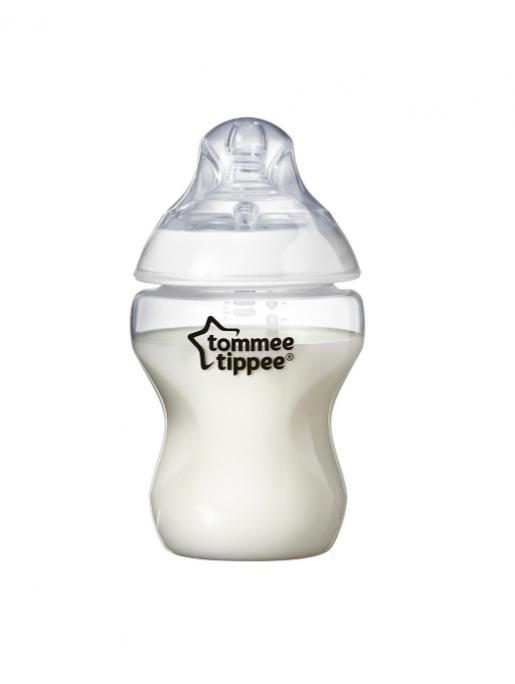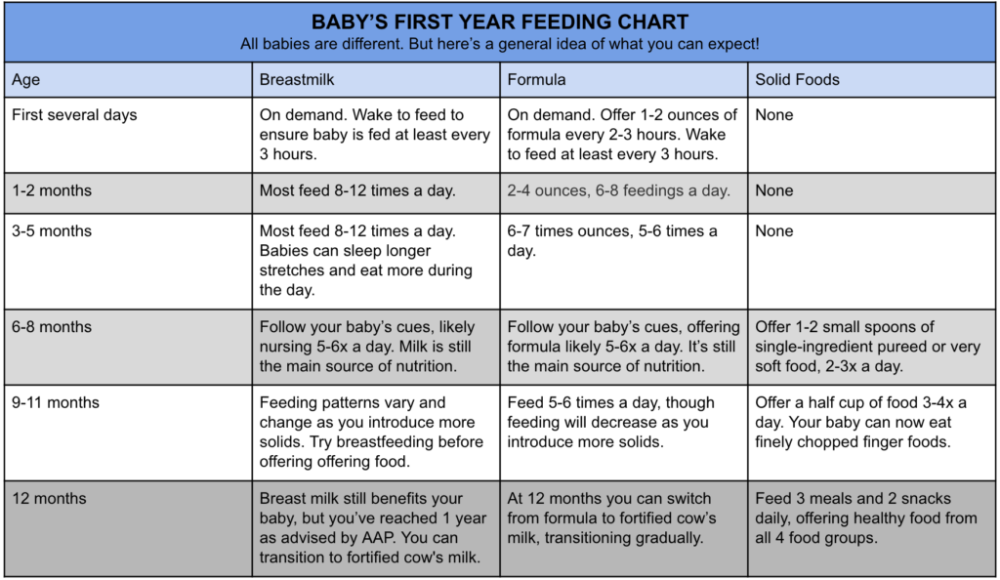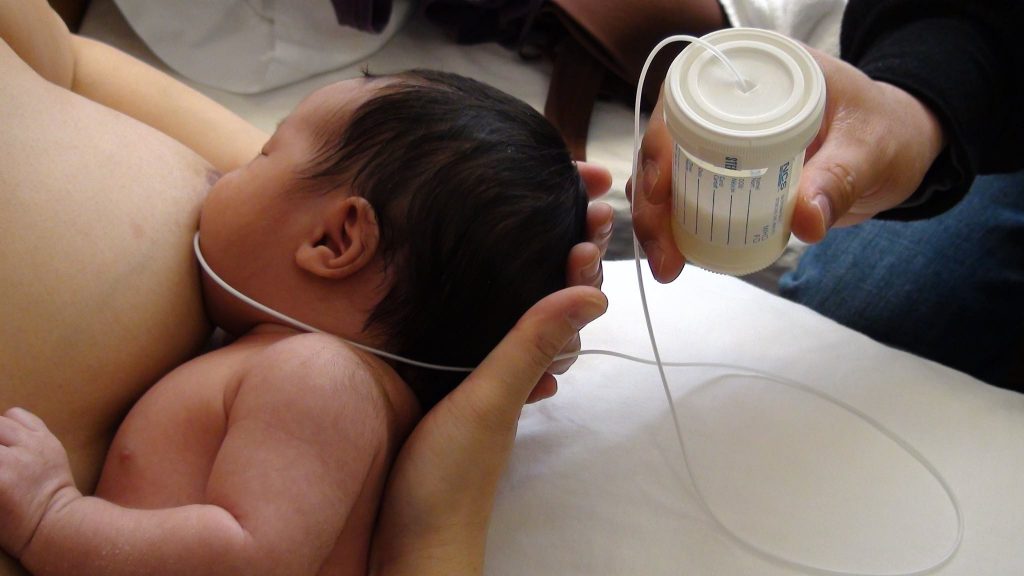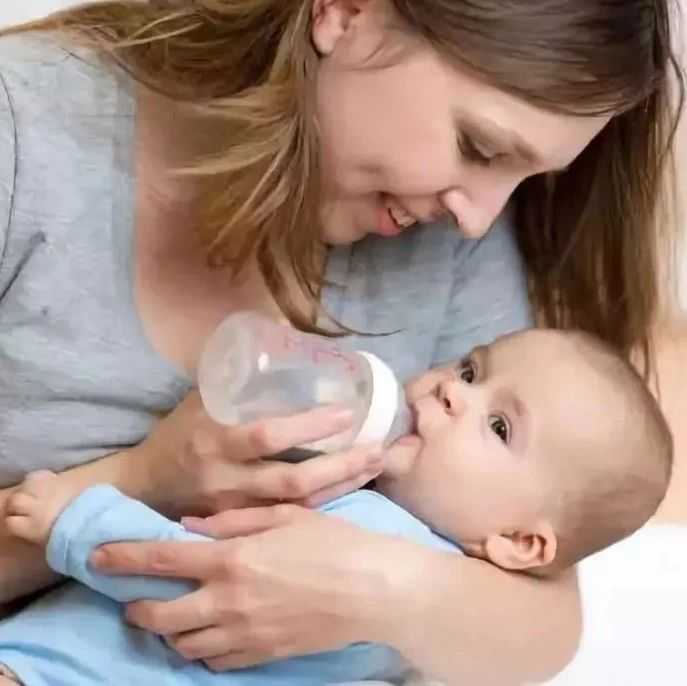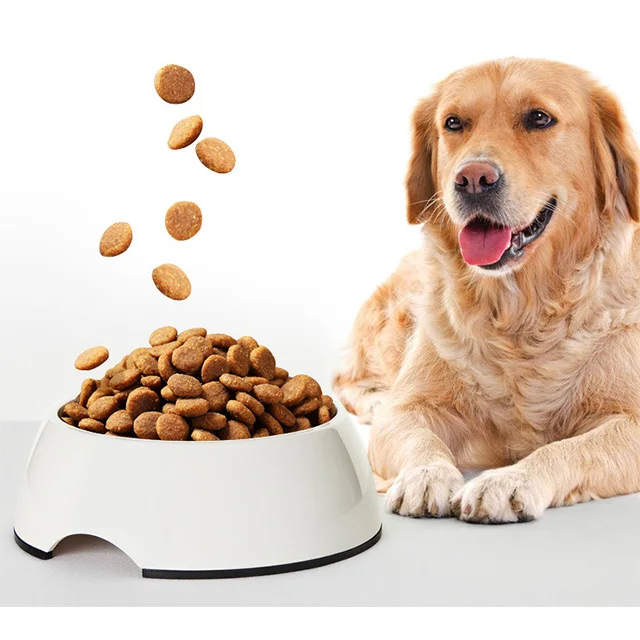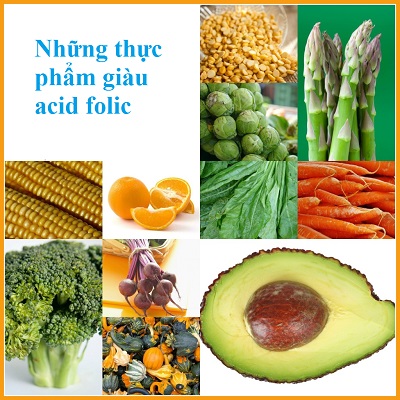Can my baby get food poisoning through breast milk
What to Do and How to Treat It
It can seem like there’s nothing worse than food poisoning — except maybe getting food poisoning while parenting. Not only do you feel terrible, but it can feel like you can’t catch a break. The parenting must go on, multiple trips to the bathroom and all.
And if you’re a nursing parent, you may face an added stress: the uncertainty of whether you can continue.
That’s a valid worry — after all, you don’t want your child somehow catching a food-borne illness through your milk. But thankfully, having food poisoning while breastfeeding is generally not a problem, according to 2017 research.
So you can (and should) keep nursing your baby.
As the Centers for Disease Control and Prevention (CDC) explains, you don’t have to stop breastfeeding when you have food poisoning, which is a non-medical term for a food-borne disease or infection.
In fact, the CDC actually recommends that you should continue breastfeeding.
But wait, there’s more: The CDC also encourages you to nurse even more frequently, while also increasing your own fluids.
Why? Because breastfeeding more frequently while you have food poisoning helps protect your baby from contracting the illness, too. It’s also excellent rehydration therapy if your baby has diarrhea.
No one wants their baby to be exposed to a pathogen that causes uncomfortable and potentially worrisome symptoms. So it makes sense to want to know about the potential risks of breastfeeding while you have a bout of food poisoning, despite expert assurance that you should continue.
Here’s what to know about the potential (but unlikely) risks of breastfeeding with food poisoning:
Danger to breastfeeding parent
Although food poisoning certainly isn’t a comfortable experience, most adults fare well and are back to health after a couple of days. However, adults who are older, immunocompromised, or pregnant may have a tougher time and may require medical attention if the situation becomes severe.
But it’s important to remember that even moderate cases of food poisoning can cause dehydration. Some breastfeeding parents notice drops in their milk supply after illnesses like food poisoning. That’s why it’s important that you stay well hydrated.
If you do notice a drop in your milk supply, it should be temporary. Nursing more frequently and replenishing your fluids should resolve things.
Danger to breastfed baby
As the CDC notes, almost all the organisms that cause food poisoning don’t get into breast milk, so there’s virtually no danger of your baby getting food poisoning from breastfeeding.
However, it’s possible that your baby could pick up the germ that made you sick from another source outside of your breast milk — for example, if baby had a taste of whatever food contained the pathogen.
Regardless, your breast milk can help protect your little one from infection. And if they do get sick, your milk will keep them properly hydrated and nourished.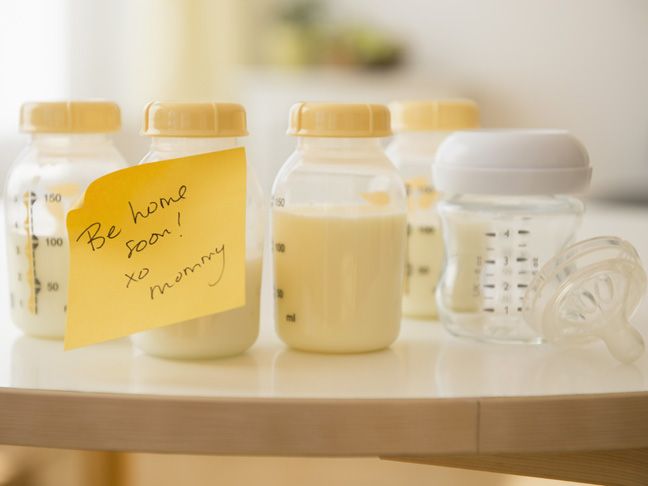
It can be easy to try to just push yourself through when you’re parenting with food poisoning. But it’s important to take care of yourself, too.
Additionally, you’ll want to be sure to take some steps to minimize passing an infection onto your baby or other children.
Here are some tips for getting through food poisoning while breastfeeding:
- Stay hydrated. Dehydration is the biggest concern when it comes to food poisoning. Even if you can’t keep food down, it’s important to continue drinking plenty of water. Consider adding some fluids meant to replenish and balance your electrolytes, too.
- Avoid Pepto Bismol. Products with oral rehydration salts are compatible with breastfeeding. However, products containing bismuth subsalicylate compounds, like Pepto Bismol, may not be safe.
- Seek medical attention. If your symptoms are lasting more than 1 or 2 days, you have a persistent fever, or you’re severely dehydrated, seek medical attention.
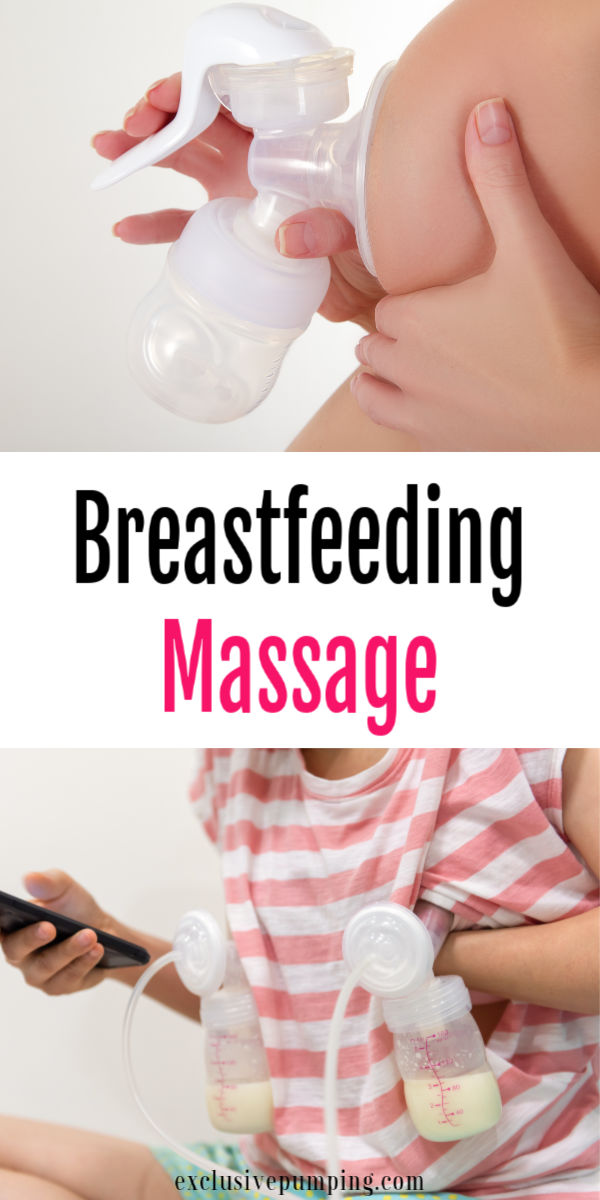 In some cases, your doctor may prescribe medication to help your symptoms or to treat the infection.
In some cases, your doctor may prescribe medication to help your symptoms or to treat the infection. - Ask a doctor about medication. If you’re unsure whether a product, medication, or antibiotic used to treat food poisoning is compatible with breastfeeding, talk with your doctor. You can also check the LactMed database, where you can find information about different substances and medications as well as their impact on breastfeeding.
- Wash your hands frequently. Over the course of your illness, wash your hands frequently with soap and water after using the toilet and after vomiting. Give your hands an extra wash before holding or nursing your baby.
- Minimize risk to others. Consider sanitizing any high touch surfaces like door handles, light switches, and toilet handles. Clean food prep areas well. Additionally, make sure that anything your baby touches or puts into their mouth — such as pacifiers, nipples, and teethers — have been thoroughly cleaned.
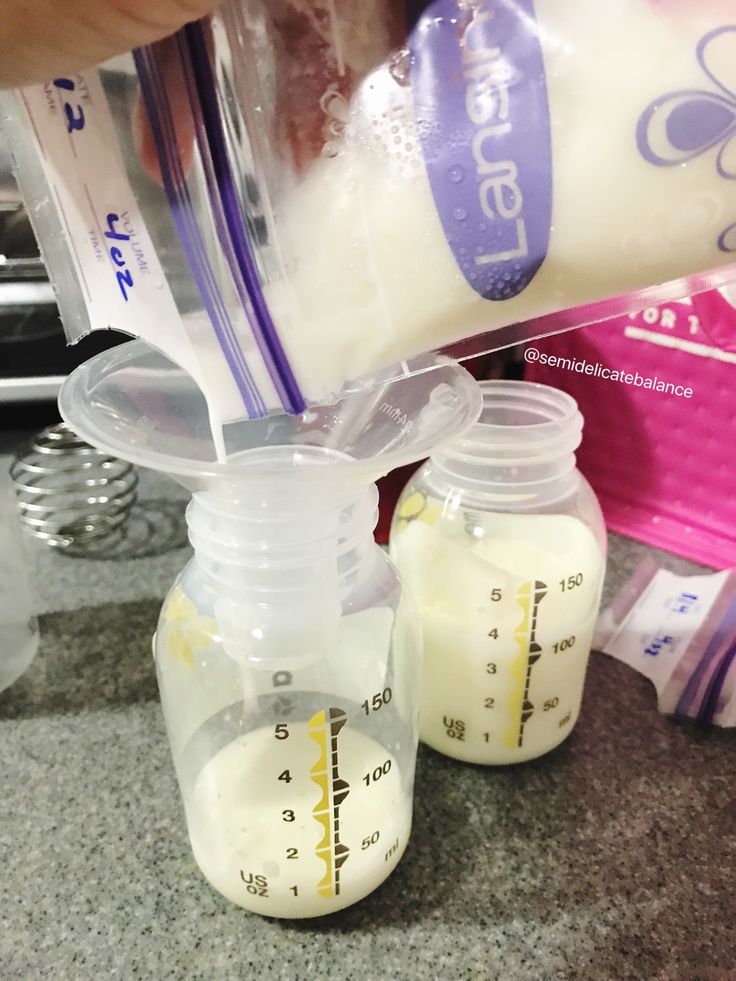
Remember, it’s important to take care of you so you can take care of your baby.
Most food poisoning symptoms — which can include nausea, vomiting, diarrhea, and stomachache — resolve within 1 or 2 days and don’t require medical attention.
However, visit a healthcare professional if you experience any of the following symptoms:
- bloody diarrhea
- high fever of over 102°F (38.8°C)
- inability to keep fluids down
- dehydration
- diarrhea that lasts for 3 or more days
Food poisoning is linked to a food or drink you ingested that was contaminated. The main symptoms of food poisoning are gastrointestinal — such as vomiting, diarrhea, and upset stomach.
Respiratory symptoms such as coughing, sneezing, or congestion are usually not caused by food poisoning.
However, food poisoning can sometimes cause fever. If you’re unsure if you’re experiencing food poisoning or something else, consult with your doctor.
It’s never fun getting sick, and you might worry about what food poisoning in particular means for you as a breastfeeding or chestfeeding parent.
The good news is, you can — and should — continue breastfeeding your baby even if you get food poisoning.
Your breast milk should not give your baby food poisoning, and in fact, it can help protect them from contracting the germ that caused the food poisoning.
If you have any questions about a food-borne illness while breastfeeding, talk with your child’s pediatrician. And if you or your baby have severe symptoms or become severely dehydrated, seek emergency medical care.
What You Need To Know
Food poisoning can be a scary prospect, especially for breastfeeding mothers. But with a little knowledge, you can keep yourself and your baby safe. It is a common illness that can affect anyone. If you are breastfeeding and experience food poisoning, it is important to know what to do to protect your baby.
You can continue breastfeeding if you have food poisoning.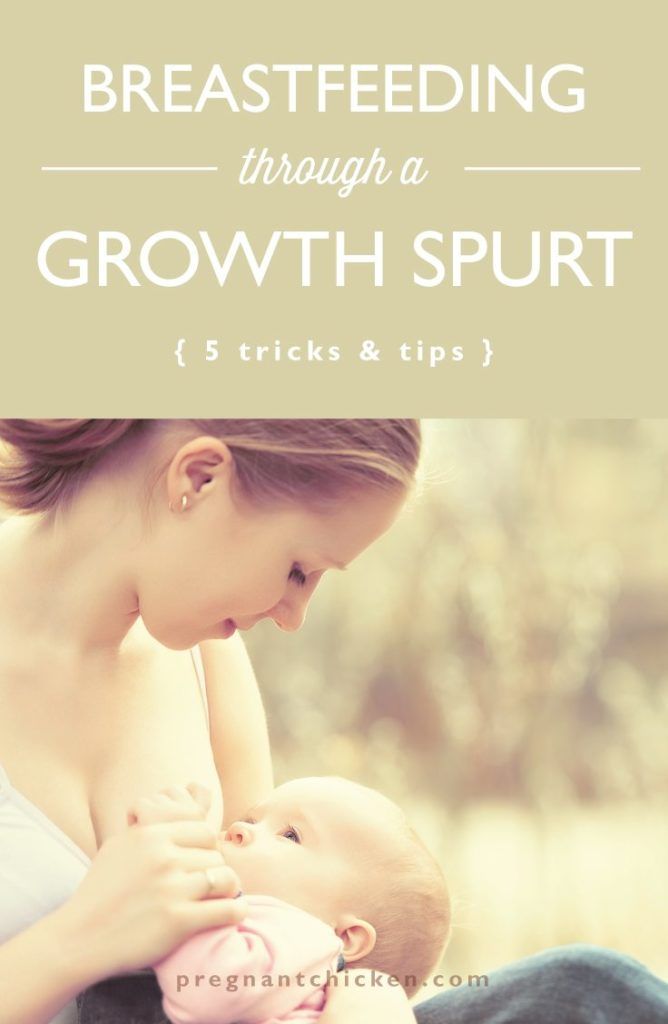 In fact, the Centers for Disease Control and Prevention (CDC) even recommends that you continue breastfeeding if you have food poisoning.
In fact, the Centers for Disease Control and Prevention (CDC) even recommends that you continue breastfeeding if you have food poisoning.
The reason is that most germs that cause food poisoning are not passed from mother to baby through breast milk. If you are feeling ill, be sure to drink plenty of fluids (rehydration solutions like Pedialyte are best) so that you don’t get dehydrated. Dehydration can make you feel worse and can make it harder for your body to fight off any infection.
What is food poisoning?
Food poisoning is a general term for a food-borne illness that occurs after eating contaminated food. Bacteria, viruses, toxins, or other harmful substances may contaminate our food or water sources, infecting them during growing, processing, cooking, or storage.
Food poisoning can cause a range of symptoms, including nausea, vomiting, diarrhea, and fever. In severe cases, it can even lead to hospitalization.
An upset stomach is a common food poisoning symptomWhat can cause food poisoning?
Several different agents can cause food poisoning, and its severity can vary depending on the particular agent involved. Some of the most common causes of food poisoning include:
Some of the most common causes of food poisoning include:
Bacteria
Bacteria are one of the most common causes of food poisoning and can be found in a wide variety of foods. These tiny organisms can contaminate food and cause food poisoning within a few hours of consumption. Common food poisoning bacteria include Salmonella, E. coli, and Campylobacter.
Viruses
Another typical source of foodborne illnesses is viruses, which you may find in several products. These microscopic organisms can taint the food and may lead to poisoning. Common viruses that cause food poisoning include Norovirus and Rotavirus.
Toxins
Toxins are poisonous substances that can contaminate what we eat. Microorganisms present in food produce these toxins. Some common toxins that cause food poisoning include Staphylococcal enterotoxin and Bacillus cereus toxin, and you can find them in products like mushrooms and seafood.
Other substances
Besides microbes, harmful viruses, and toxins, many other substances can cause poisoning. These include chemical contaminants, such as cleaning products or pesticides; metals, such as lead or mercury; and poisonous plants, such as hemlock and jimsonweed.
These include chemical contaminants, such as cleaning products or pesticides; metals, such as lead or mercury; and poisonous plants, such as hemlock and jimsonweed.
Improper handling
Improper handling is a major cause of food poisoning. This can include everything from not washing your hands before cooking to leaving food out for too long. It is important to follow proper food safety guidelines to help prevent food poisoning.
Can you breastfeed your baby with food poisoning?
Yes, it is safe to breastfeed the baby even with food poisoning. Breast milk is safe and nutritious for the baby, so don’t stop breastfeeding. Nursing mothers should drink plenty of fluids and get rest so that dehydration does not affect milk production.
It is also advisable to breastfeed your baby more often to prevent them from contracting the illness, as breast milk can help eliminate the toxins from the body.
Can food poisoning be passed through breast milk?
No, the baby cannot get food poisoning through breast milk.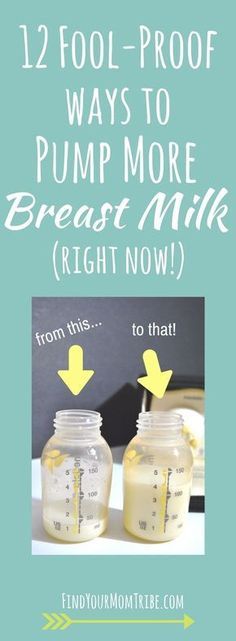 Most pathogens and toxins that cause food poisoning cannot transmit through that path. However, there is a chance that your baby may contract the illness from the same contaminated food that caused your food poisoning. So, it is important to take care when handling and preparing meals.
Most pathogens and toxins that cause food poisoning cannot transmit through that path. However, there is a chance that your baby may contract the illness from the same contaminated food that caused your food poisoning. So, it is important to take care when handling and preparing meals.
When lactating mothers suffer from food poisoning, breastfeeding may be unpleasant for both the infant and the mom. Food poisoning generally resolves within 1 to 3 days without any treatment. However, there are some risks associated with food poisoning to the baby and the mom.
Risks to the breastfeeding mothersBreastfeeding can be exhausting and dehydrating for the mom, but the symptoms of food poisoning usually subside within a day or two. There is a chance that the breast milk supply may decrease during this time, but it usually returns to normal once the mother feels better.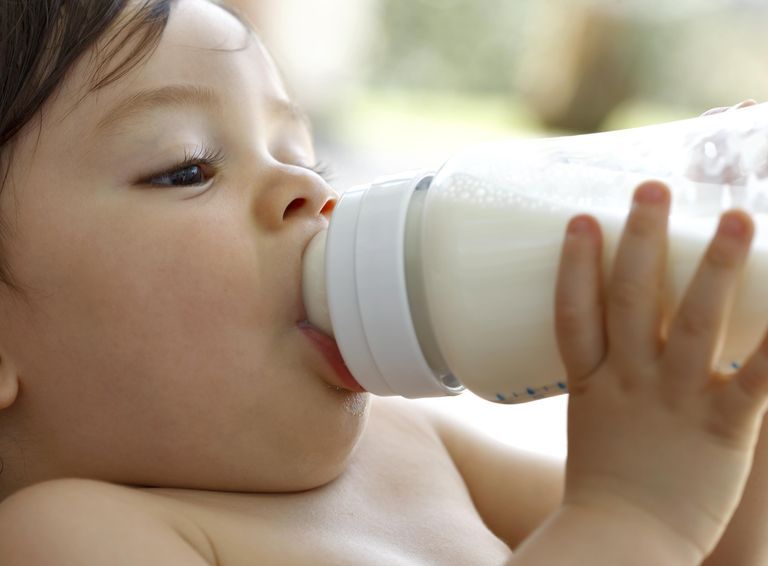 So, don’t worry if your baby doesn’t seem to be getting as much milk during this time, and continue breastfeeding as the milk supply will eventually get back to normal.
So, don’t worry if your baby doesn’t seem to be getting as much milk during this time, and continue breastfeeding as the milk supply will eventually get back to normal.
Some women who have low immunity may experience more severe signs of food poisoning. In such cases, it is important to seek medical help immediately.
Risks to the babyBabies are completely safe while breastfeeding from a mother who has food poisoning. As the infectious pathogens cannot pass through the breast milk, the babies who are exclusively breastfeeding are at very low risk of developing the illness.
However, there is a chance that the baby may experience dehydration if the mother cannot breastfeed frequently enough. So, to keep your baby nourished and hydrated, continue breastfeeding as often as possible.
If your baby catches the illness, don’t stop breastfeeding, and make sure you keep them hydrated. You can also see a doctor if the need arises.
What foods can upset a baby when breastfeeding?
Some breastfeeding moms may also find that their babies are sensitive to certain foods.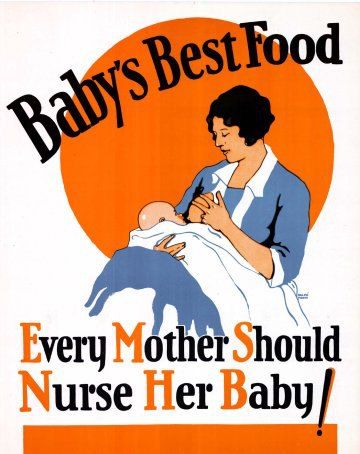 So, if you notice that your baby is fussy or has diarrhea after eating certain foods, try replacing them and check the difference.
So, if you notice that your baby is fussy or has diarrhea after eating certain foods, try replacing them and check the difference.
When nursing, certain foods may cause discomfort to the baby. These include:
Dairy products
Dairy products can cause diarrhea and gas in some babies. If you notice these signs in your baby after eating dairy, try eliminating them from your diet for a few days to see if the symptoms improve.
Caffeine
Caffeine can cause irritability, insomnia, and stomach upset in some babies. If you notice these symptoms in your baby after having caffeinated products, it is best to avoid them while breastfeeding.
Spicy meals
Spicy food can cause heartburn, indigestion, and gas in some infants. If you notice these symptoms in your baby after eating spicy foods, try to avoid them or eat them in moderation while nursing.
Gas-producing foods
Foods that are high in fiber or sugar can make the baby bloated and uncomfortable.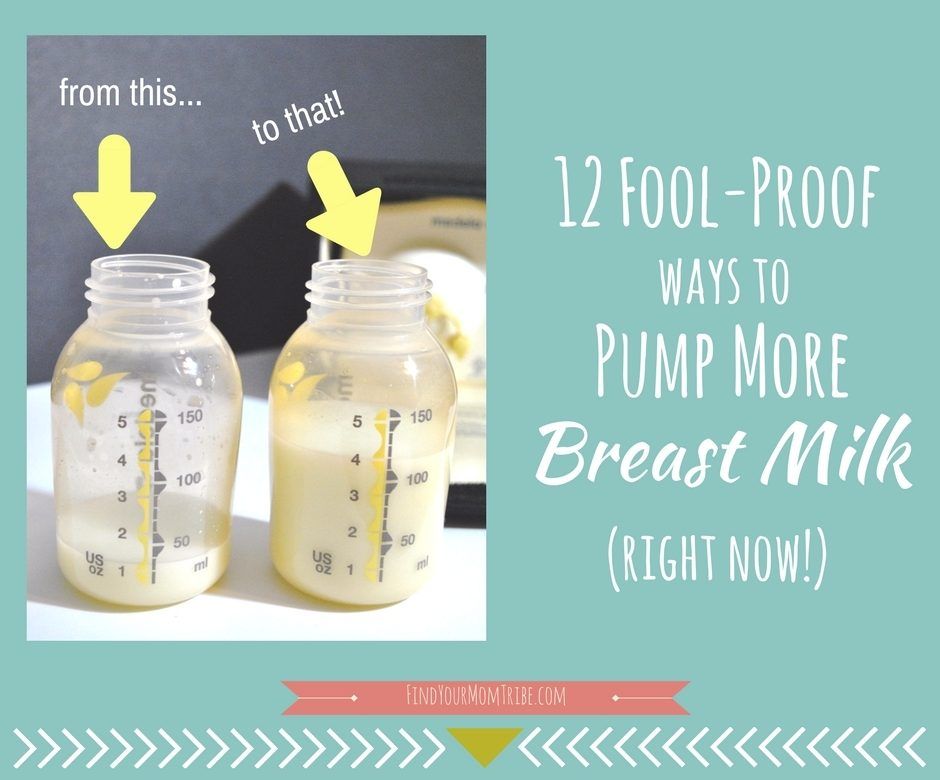 These include beans, broccoli, cabbage, and onions. If you have any of these symptoms in your baby after feeding, make sure you avoid them, or your baby may refuse to nurse.
These include beans, broccoli, cabbage, and onions. If you have any of these symptoms in your baby after feeding, make sure you avoid them, or your baby may refuse to nurse.
Acidic fruits
Acidic fruits can cause heartburn and indigestion in some babies. These include oranges, grapefruits, lemons, and limes. If your baby experiences these symptoms after eating acidic fruits, try to avoid them or eat them in moderation.
What to do if you have food poisoning?
If you have food poisoning while breastfeeding, there are a few things you can do to help yourself and your baby feel better.
Drink plenty of fluids
It is important to increase fluid intake, especially if you are a nursing mother. This will help keep you hydrated and reduce the symptoms of diarrhea and vomiting. Try to drink fluids that contain electrolytes to replace the lost minerals.
Avoid drinking caffeinated or alcoholic beverages because they can make you even more dehydrated.
Take rest
When you are unwell, you must give your body the rest it needs. It’s important to get plenty of rest and water, as dehydration can make it more difficult for your body to fight off the illness. Resting can help your body focus on fighting the infection and aid in recovery.
It’s important to get plenty of rest and water, as dehydration can make it more difficult for your body to fight off the illness. Resting can help your body focus on fighting the infection and aid in recovery.
So, make sure you get plenty of sleep and take it easy until you feel better.
Eat light and bland foodsWhen you have food poisoning, your stomach is usually very upset. So, it is best to stick to light and bland meals until you feel better. Use BRAT diet foods like bananas, rice, applesauce, and toast to help settle your gut. Try to avoid spicy or fatty foods, as these can aggravate your stomach further.
If you have trouble keeping food down, try eating small meals at regular intervals. And, make sure you take plenty of fluids in between meals.
Avoid self-medicationIt is important not to take any medication without consulting a doctor. Many over-the-counter medications can interact with breastfeeding and may not be safe for the baby.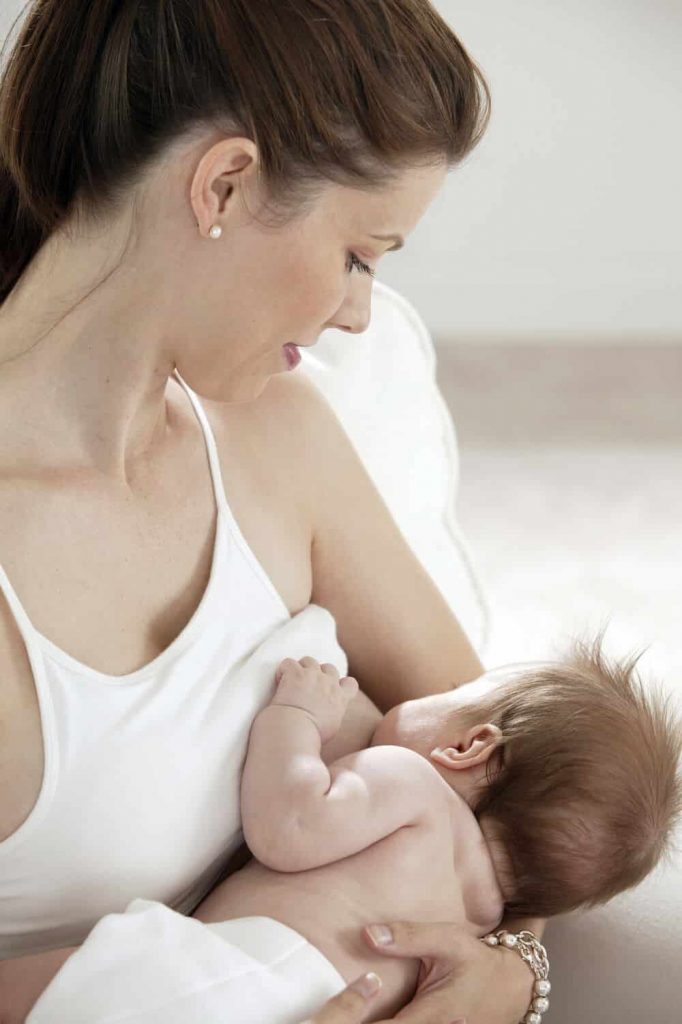 Furthermore, some medicines may exacerbate food poisoning symptoms and make you feel worse.
Furthermore, some medicines may exacerbate food poisoning symptoms and make you feel worse.
So, if you are feeling unwell, it is best to consult a health care provider before taking any medication.
Consume fresh fruits and vegetable
Fresh fruits and vegetables are a great way to boost your immune system and help you recover from food poisoning. They are also full of essential vitamins and minerals that your body needs to heal. It also helps to eat probiotic-rich foods, such as yogurt, as they can help to restore the balance of good bacteria in your gut.
So, make sure you include plenty of fresh fruits and vegetables in your diet while you are recovering.
Ensure cleanliness
When you have food poisoning, it is important to maintain good hygiene to prevent the spread of infection. Wash your hands thoroughly with soap and water after using the bathroom or handling raw food products. Also, make sure you clean all surfaces that come into contact with food.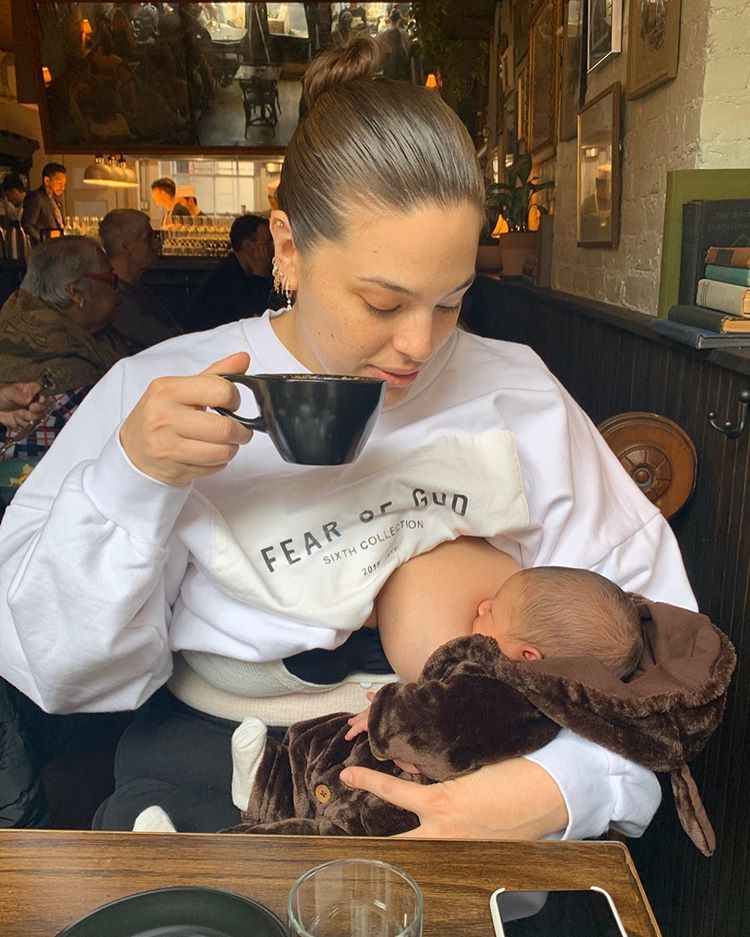 Also, keep your kitchen clean and sanitized.
Also, keep your kitchen clean and sanitized.
It is also good to keep your baby’s environment clean and free of infection. Make sure you regularly disinfect all surfaces in their room and wash their clothes and linens in hot water.
When to consult a doctor?
Food poisoning usually lasts for a few days, and most people recover quickly without any consequences. However, there are a few cases where serious complications can occur. Therefore, it is important to see a medical professional if you experience any of the following symptoms of food poisoning:
- Severe stomach cramps
- Blood in your vomit or stool
- Diarrhea that lasts for more than three days
- A high fever (over 101 degrees Fahrenheit)
- Vomiting that lasts for more than 24 hours
- Dizziness or lightheadedness
- Unusual weakness or fatigue
If you are pregnant, lactating, have a compromised immune system, or are elderly, you are also at higher risk of food poisoning complications.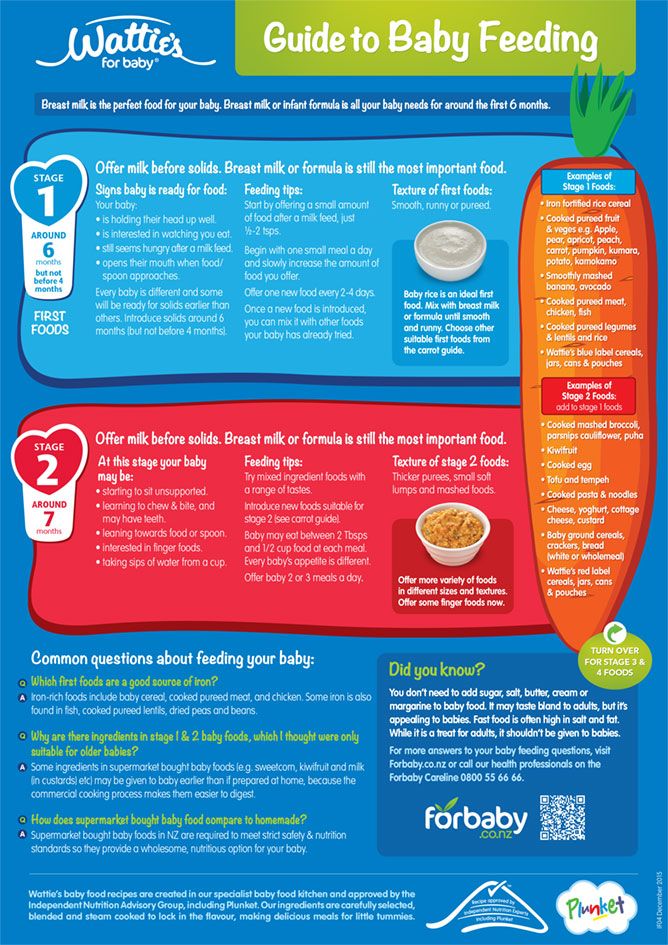 In these cases, it is important to approach a doctor and seek medical attention immediately.
In these cases, it is important to approach a doctor and seek medical attention immediately.
How to prevent food poisoning?
You cannot always avoid food poisoning, but there are a few things you can do to minimize risk. Here are a few tips:
Practice good hygiene
After using the toilet or handling food, wash your hands thoroughly with soap and water. Make sure your drains are clear and that you clean all surfaces that come into contact with food. Sanitize your kitchen regularly and keep your counters and appliances clean.
Cook food properly
Make sure you cook meals properly and avoid eating raw or undercooked meat, poultry, eggs, or seafood. If you are unsure if food is cooked properly, use a thermometer to verify. Also, avoid cross-contamination by keeping raw food separate from cooked food.
Avoid high-risk foods
Certain types of food are more prone to infest illnesses, so it is best to avoid them. Avoid eating high-risk foods such as unpasteurized milk and dairy products, undercooked meat and poultry, raw eggs, and shellfish.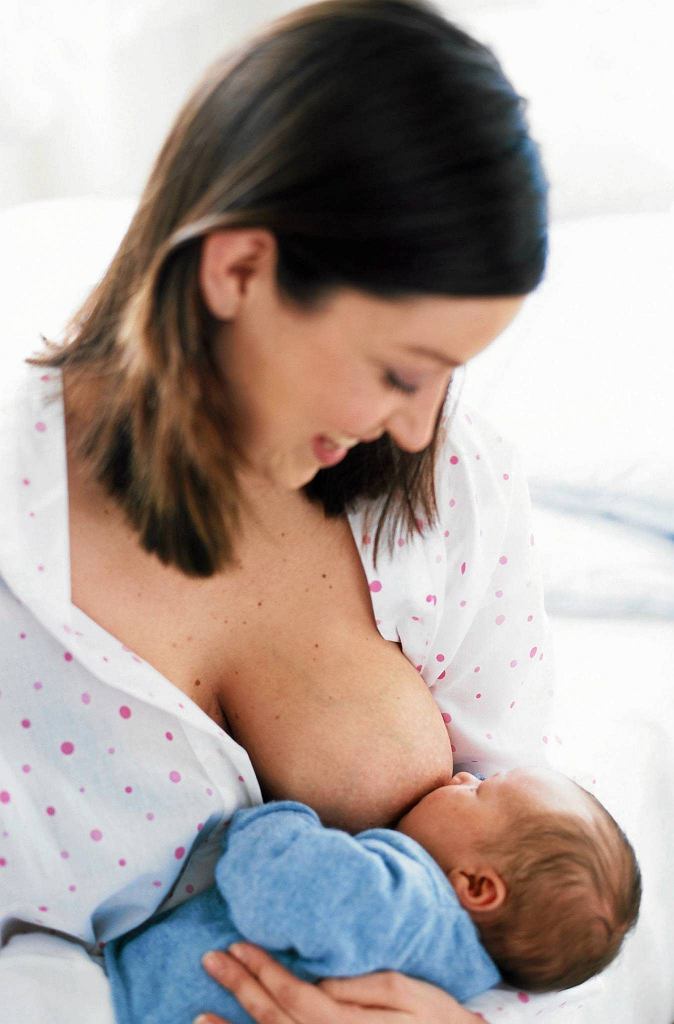 Also, be careful when eating pre-cut fruits and vegetables, as harmful bacteria may contaminate them.
Also, be careful when eating pre-cut fruits and vegetables, as harmful bacteria may contaminate them.
Store food properly
Make sure you store food properly and avoid leaving it out for long periods of time. Keep perishable foods in the fridge and cook or freeze them within two hours. Also, avoid packing too much food into your fridge as this can lead to bacterial growth.
Stay hydrated
Maintain your own fluid intake to stay hydrated, as it helps flush out the toxins from your system. Drink plenty of water, juice, and sports drinks. You can also have oral rehydration salts if you are feeling parched.
Final Words
Food poisoning while breastfeeding is a scary prospect, but with a few precautions, you can protect yourself and your nursing child. This condition requires extra care, so avoid self-medicating and consult a healthcare professional if you experience any severe food poisoning symptoms. With proper treatment, you can get back to your usual self in no time.
Food poisoning in a child - rules for prevention and treatment There are frequent cases when, even in the treatment of children, parents do not resort to the help of doctors, but manage with a “standard” set of funds from grandmother's recipes or advertising on TV. Gastric lavage with potassium permanganate, taking activated charcoal or some other absorbent, this is the usual set in the hands of an “experienced” parent. However, not everyone clearly understands the essence of intoxication of the body, not everyone can correctly determine its nature and predict the consequences. Not everyone knows that in some cases, poisoning can cause deadly bacteria, such as botulism, and sometimes it happens that a completely different disease is hidden under the symptoms of intoxication of the body, for example, heat stroke. And while parents are trying to overcome the false poisoning of the child, they lose precious time, which can lead to a sharp deterioration in the condition and serious consequences.
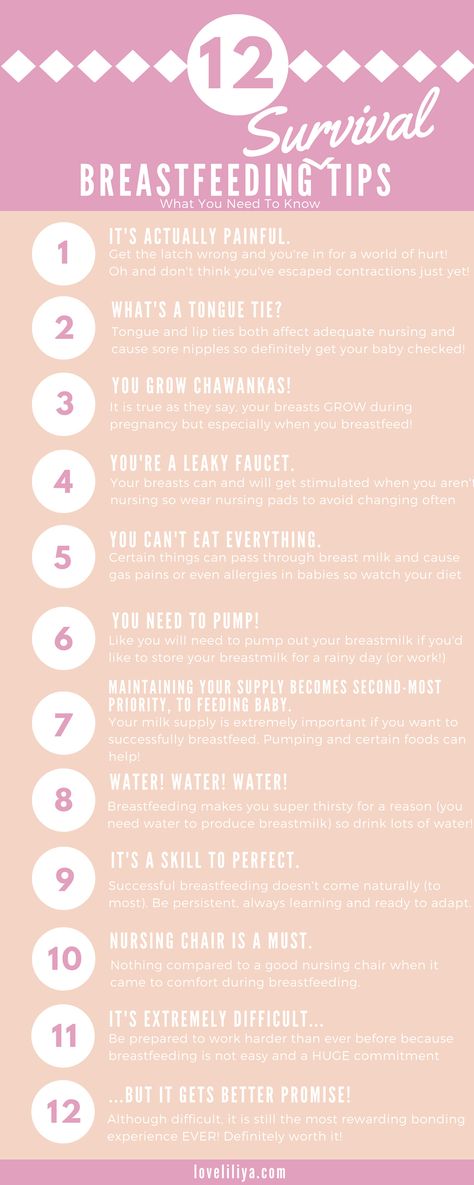
Given all of the above, it should be noted that parents should not self-medicate, even if it seems to them that it is food poisoning in a child and that they themselves will quickly cope. We recommend that you always seek medical attention, although if possible, take some steps to alleviate the child's condition. We will describe how to prevent food intoxication and what to do if it occurs.
We also recommend reading the resource "Protecting children from the sun", where you will learn about the dangers of the scorching summer sun, about common myths about this and about the correct methods of protection. If you are raising a teenager and have begun to notice oddities in their behavior, then we recommend reading an important article about common signs of drug addiction in teenagers.
Children will not get food poisoning if adults follow simple rules
Food poisoning in children - possible routes of intoxication and their symptoms
Their immune systems are still not strong enough.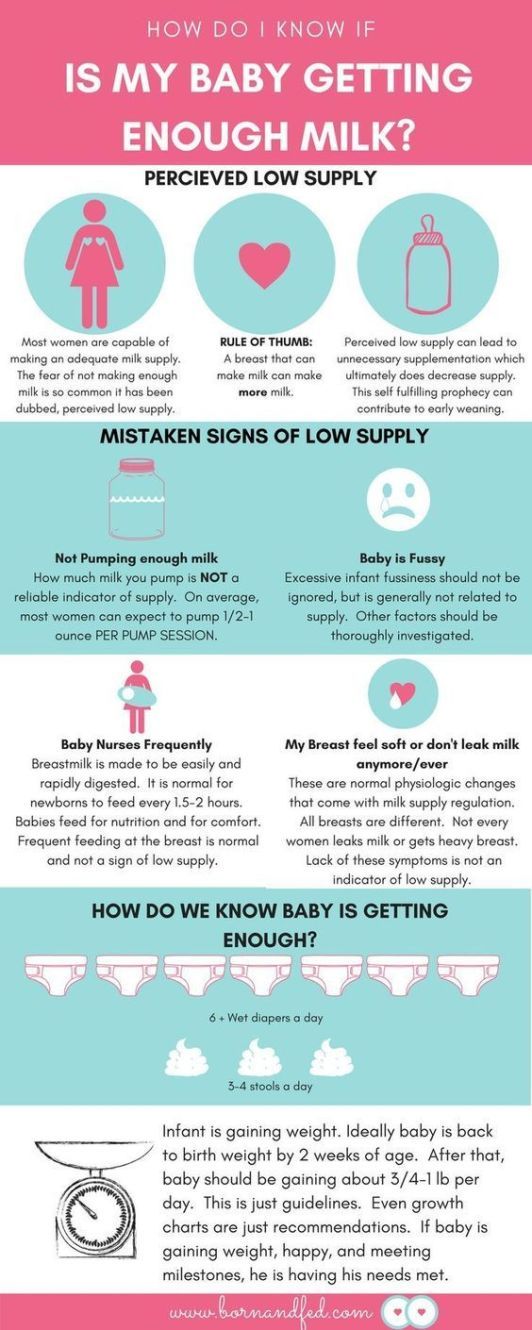 Food poisoning in children, as well as in adults, most often occurs when eating food that is contaminated with microbes. Separate manifestations in two forms - toxic infection, as well as intoxication.
Food poisoning in children, as well as in adults, most often occurs when eating food that is contaminated with microbes. Separate manifestations in two forms - toxic infection, as well as intoxication.
Usually, toxic infection is caused by microbes belonging to the Salmonella group, as well as para-Escherichia and Escherichia coli. Be aware that salmonella is very common and often infects the intestines of birds and animals. And when the animal's body weakens and, accordingly, its protective functions, too, salmonella infect all internal organs. Such meat, having got on the table to people after a weak heat treatment, causes poisoning. Salmonella can also infect eggs, pies, milk, cheese, fish and cottage cheese. Symptoms of poisoning usually occur after a few hours or later, depending on the dose, the organism and the nature of the poisoning. The child begins to feel nausea, vomiting, headache, stools are frequent and liquid, body temperature rises. The disease lasts from two days to a week and in most cases ends in recovery.
Food Intoxication of the child's body occurs as a result of eating, which contains poisons in the form of microbial waste products. They are called toxins. Most often, such poisoning is caused by staphylococcus aureus. It, as a rule, gets into ready meals from those who have pustular skin diseases. Poisoning through cakes, ice cream, pastries, sausage, ham, sausages and so on is common. Even when ingested in raw foods, this toxin is not easy to destroy. At the boiling point, it does not collapse for several hours. Symptoms of poisoning usually appear in time in the same way as with toxic infection. The clinical picture and course of the disease are similar.
Botulism causes a very dangerous poisoning of the body, which without urgent medical intervention can result in the death of a child. Botulism bacteria thrive in an oxygen-free environment and produce a strong toxin. It is destroyed after 20 minutes of boiling, but in order to destroy the spores themselves, it is necessary to maintain a temperature of 120 degrees Celsius for 10 minutes. The most common source of poisoning are all kinds of canned foods, namely meat, fish, vegetables. But cases of intoxication were also observed through the earth, which was contaminated with the feces of sick animals. The onset of the disease occurs after a couple of hours, although an incubation period of several days is sometimes possible. The child feels dry mouth, dizziness, general weakness and shortness of breath, the pulse quickens, paralysis of the eye and facial muscles, as well as the muscles of the soft palate and tongue, occurs. Because of this, a disorder of speech, vision and swallowing occurs - the child chokes and begins to distinguish poorly between nearby objects and text. The toxin affects the nervous apparatus of the heart and the central nervous system. The disease lasts 4-8 days, is difficult and without medical intervention can lead to death due to paralysis of the respiratory center.
The most common source of poisoning are all kinds of canned foods, namely meat, fish, vegetables. But cases of intoxication were also observed through the earth, which was contaminated with the feces of sick animals. The onset of the disease occurs after a couple of hours, although an incubation period of several days is sometimes possible. The child feels dry mouth, dizziness, general weakness and shortness of breath, the pulse quickens, paralysis of the eye and facial muscles, as well as the muscles of the soft palate and tongue, occurs. Because of this, a disorder of speech, vision and swallowing occurs - the child chokes and begins to distinguish poorly between nearby objects and text. The toxin affects the nervous apparatus of the heart and the central nervous system. The disease lasts 4-8 days, is difficult and without medical intervention can lead to death due to paralysis of the respiratory center.
Please note that botulism spores may contain canned honey, even commercially produced honey. Therefore, in no case should you give such honey to children under one year old, they may develop infant botulism. And for adults, it is usually harmless.
Therefore, in no case should you give such honey to children under one year old, they may develop infant botulism. And for adults, it is usually harmless.
In infants, botulism, as a rule, begins precisely with constipation, then the baby begins to make sucking movements poorly and swallows with difficulty, his eyelids begin to weaken, he weakly makes sounds or words, and general impotence develops.
Non-bacterial poisonings are usually due to the consumption of poisonous mushrooms, fish or light-green potatoes, which accumulate poisonous solanine under their skin. Many mushrooms are poisonous in nature, and there are many false mushrooms, remember that it is not recommended for children to eat mushrooms at all until they are 12 years old. Especially often they are poisoned by mushrooms - lines that are very similar to edible morels. Only stitches in dry weather develop poisonous gelvellic acid, a very potent poison that is resistant to heat. Pay attention to the photos and avoid buying and picking similar mushrooms.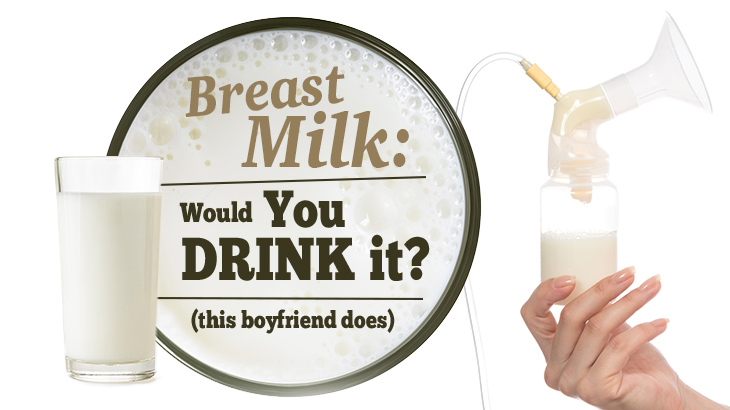
Poisonous - line. Edible morel.
Toxin poisoning of some fish may be due to improper handling or transport. For example, mackerel produces poisons if it is not frozen in time. Also keep in mind that children should not be given Japanese sushi with fish or shrimp, which can also serve as a source of dangerous poisoning.
Food poisoning in children - disease prevention
Here are the basic rules for the prevention of food poisoning in children:
- Adults should remember the first and most important rule from school: “wash your hands before eating”, and this is not just a general slogan, but a vital necessity. Washing hands before eating reduces the risk of poisoning several times.
- Further, the second rule is to thoroughly wash the foods that you eat raw - vegetables and fruits. Do not give raw milk and eggs to children. Pasteurized milk from the store is also recommended to boil.
- Prevent children from eating "adult" foods such as Japanese sushi, smoked fish, mushrooms, and so on.
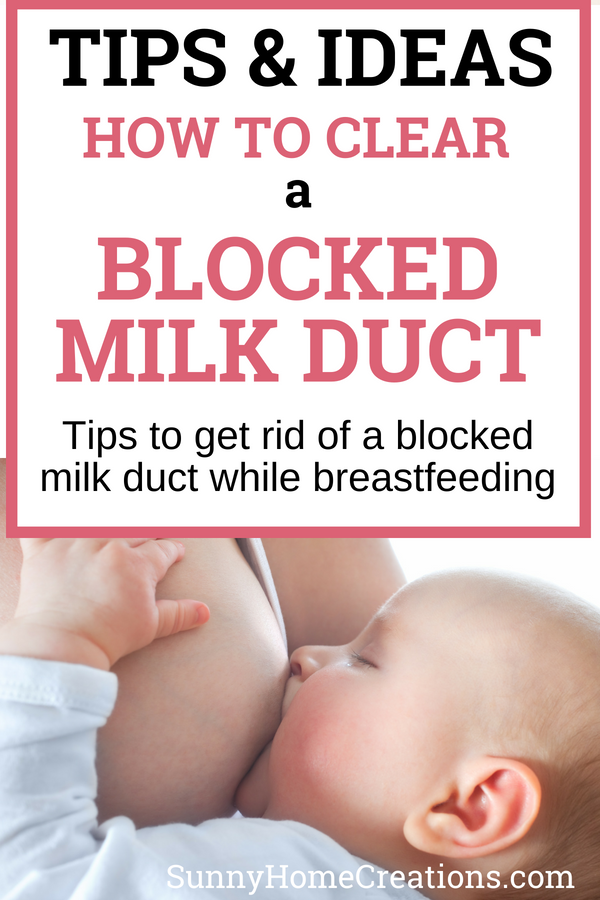
- The meat of birds, animals, must undergo careful temperature treatment, use the rule: "you can't digest the meat." The same applies to fish, seafood and eggs.
- When canning at home, strictly adhere to the technology and temperature regime for the destruction of botulism spores. Do not use homemade or factory-made products that bulge bags, jars, or lids (also called bombing). Do not eat foods with a suspicious smell or texture.
- Store perishable foods in the refrigerator only during their expiration date and in a container with a closed lid. Remember that cakes, cream cakes, salads with mayonnaise, open packages of food and drinks that do not contain preservatives, such as natural juices, spoil very quickly. Remember the approximate storage time of popular products in the cold up to 8 degrees (without cold, it is much less, and sometimes products cannot be stored without cold at all). Of course, modern preservatives can extend the life of some products, but do you need to risk the health of your children in vain.

- Cottage cheese mass, curd cream or cheese curds - in the cold up to 24 hours (cannot be stored without cold).
- Pies fried with meat or fish - in the cold up to 24 hours, in a cool place up to 12 hours.
- Cake with butter cream - in the cold up to 6 C °, the shelf life is up to 36 hours, in a cool place up to 12 hours.
- Custard tart - refrigerate up to 6 hours, cannot be stored without refrigeration.
- Serve hot fish or meat dishes on the table soon after cooking, do not store perishable food outside the refrigerator.
- Always check the expiration date of products when buying and before eating.
- Do not buy very early fruits and vegetables (such as tomatoes, watermelons, melons or strawberries), they tend to be high in chemical growth stimulants that can cause acute poisoning.
- Do not buy food in questionable places from hands or trays. Especially in the hot season, especially on the beach, especially meat products (chebureks, belyashi, etc.
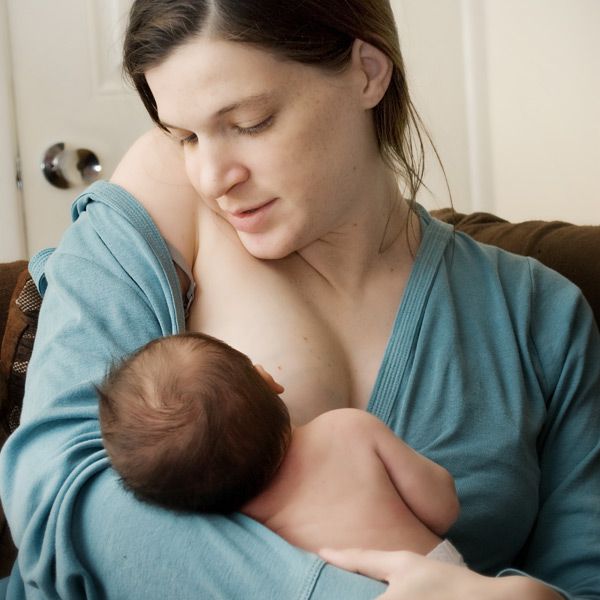 ), especially for children! Remember that meat in the sun after 20-30 minutes can turn into poison.
), especially for children! Remember that meat in the sun after 20-30 minutes can turn into poison.
Parental actions if a child has food poisoning
Providing medical care for food poisoning
When a child has food poisoning, the most important thing is to provide the child with medical care promptly. If you are on vacation, then contact the administration of the hotel or recreation center so that they take urgent measures. If you are at home, then, depending on the situation, call a doctor, emergency or ambulance. In case of a sharp deterioration in the condition, immediately call an ambulance (even if you have previously called a doctor at home), dangerous syndromes include: vomiting or diarrhea with blood, delirium, hallucinations, loss of consciousness, asphyxia (the child is suffocating), weakening of the pulse, cyanosis skin (the child begins to turn blue).
Always remain calm, do not scare, but rather calm the child. Clearly and in detail describe the essence of the problem and symptoms to the medical worker by phone, ask for general recommendations over the phone, what you need to do before the ambulance or doctor arrives.
Please note that the symptoms of an illness may only look like poisoning, but in fact it may be a completely different disease, such as sunstroke. Only a doctor can make a qualified diagnosis.
General actions in case of child poisoning
If you are sure that the child has food poisoning (preferably after consulting a doctor over the phone), then first of all ensure that the stomach is empty of the food that is most likely the cause of the illness. To do this, let the child drink a lot of warm boiled water, and then induce vomiting by pressing on the root of the tongue. Repeat the procedure until the vomit comes out clean, without pieces of food and mucus. We DO NOT RECOMMEND rinsing the stomach with potassium permanganate (potassium permanganate) without consulting a doctor. But if you are planning to make such a solution, then use either drops, or in the case of crystals, carefully pour the solution into another dish to avoid internal burns with small particles. Remember that the potassium permanganate solution should be slightly pink, and do not give potassium permanganate to children under 5 years old.
Remember that the potassium permanganate solution should be slightly pink, and do not give potassium permanganate to children under 5 years old.
Use sorbents to remove absorbed harmful substances and toxins from the child's intestines. These are substances that draw toxins into themselves and then remove them from the body. Popular drugs are: activated carbon, Polyphepan, Karbolong. But remember that in some cases - with ulcerative and erosive lesions of the intestines and stomach, these drugs may be contraindicated. The drug Enterosgel is very popular, it does not irritate the mucous membranes and has excellent sorption properties of toxins, and it also sorbs bilirubin.
In case of poisoning accompanied by diarrhea and flatulence, Bifilact extra or Extralact can be used, they also contain microbial components that restore the normal intestinal flora. It’s also a good idea to use Smecta - it protects the inflamed mucous surfaces from the effects of viruses and toxins and restores the stool.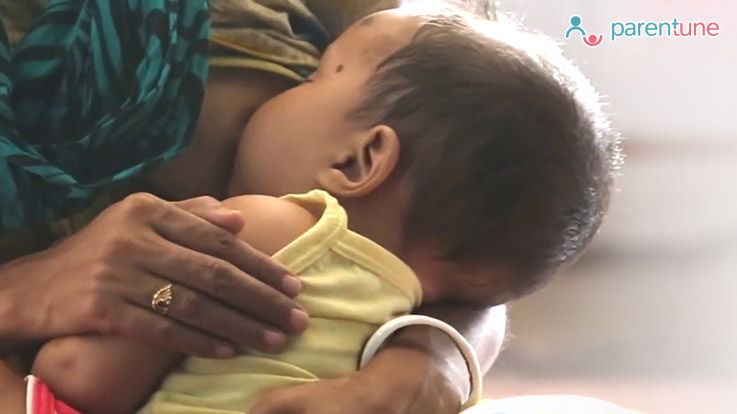 Please note that Imodium (Loperamide) is not recommended to be used alone for food poisoning, since if used incorrectly, even more active absorption of harmful substances into the blood is possible.
Please note that Imodium (Loperamide) is not recommended to be used alone for food poisoning, since if used incorrectly, even more active absorption of harmful substances into the blood is possible.
In any case, do not self-medicate your children with food poisoning, always consult a doctor!
Site article - "Children's safety"
Treatment of food poisoning in a child
Food poisoning is an acute infectious-toxic pathology. It occurs when eating poor-quality products that contain pathogens, toxic substances and poisons. The main manifestations are diarrhea, vomiting, fever, signs of dehydration and severe intoxication. The task of treatment is to quickly stop the symptoms of poisoning, replenish fluid deficiency, and prevent the development of complications.
Classification
Food poisoning is classified as toxic infection or intoxication. Pathology develops after the use of low-quality food, water, plant, chemical or medicinal toxic substances.
There are two types of food poisoning in children:
- Infectious. The causative agents are microbes and their toxic waste products.
- Non-infectious. Caused by toxic substances of plant, animal origin, toxic impurities.
The asymptomatic or latent stage of food poisoning begins from the moment the toxins enter the body until the first symptoms appear. The duration depends on the individual characteristics and age of the child, the amount and rate of absorption of poisons. This stage is most favorable for therapy, since toxic substances have not yet penetrated into the blood.
The toxicogenic stage begins with the appearance of the first symptoms of poisoning and lasts until bacteria and poisons are completely eliminated from the body. This period is characterized by the manifestation of all symptoms of poisoning. In order for the treatment to be effective, it is necessary to identify toxins and accelerate the process of elimination.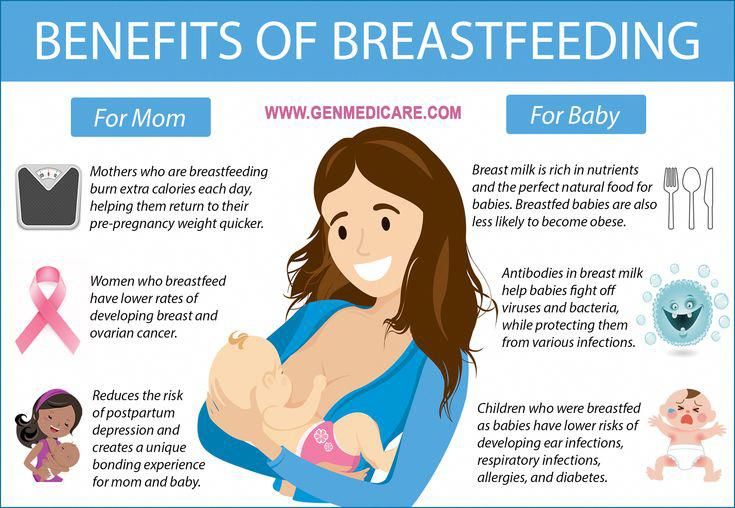
At the last stage of convalescence, the disturbed functions of the organs of the digestive, excretory, and immune systems are restored.
Causes
Food poisoning is one of the most common problems in pediatrics. In children, intoxication is more severe than in adults. This is due to the characteristics of the child's body: low acidity of gastric juice, incompletely formed intestinal microflora, rapid absorption of poisons and the spread of toxins throughout the body.
The main causative agents of food poisoning in children are staphylococci, proteus, klebsiella, enterotoxigenic strains of E. coli, clostridia. Pathogens enter the body only with food, in which they multiply, release toxins.
Causes of violation of food quality:
- non-compliance with sanitary and hygienic standards;
- violation of the rules of storage, preparation and sale of food products;
- contamination of food by people with intestinal infections, purulent pathologies - tonsillitis, furunculosis, panaritium, mastitis, streptoderma;
- contamination of soil and plants with animal feces.

Spoiled products may have an unpleasant taste, smell, uncharacteristic texture, but often organoleptic indicators remain within the normal range.
Non-infectious poisoning - a consequence of accidental consumption of poisonous berries or plants, mushrooms. Intoxication can occur after eating agricultural products that are contaminated with poisonous fungicides, insecticides.
Which products are classified as potentially hazardous?
In children, food poisoning often occurs after drinking unboiled water, missing milk or dairy products.
Dangerous products include:
- eggs;
- cream confectionery;
- fish and seafood;
- sausages;
- meat, vegetable preserves;
- mushrooms.
Food poisoning is most often diagnosed in summer and autumn. During this period, the conditions for the reproduction of microbial pathogens are the most favorable.
Symptoms of food poisoning in a child
Despite the variety of toxic infections, clinical manifestations are largely similar.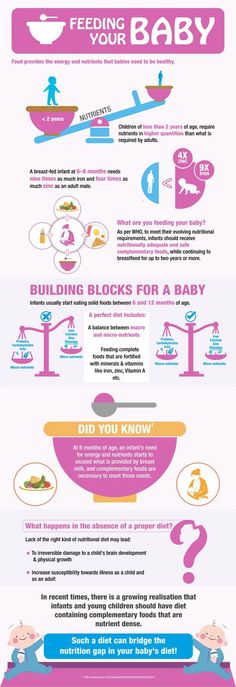 The latent stage lasts an average of 2-6 hours, sometimes no more than 30 minutes or more than a day. Signs of poisoning are manifested by symptoms of gastroenteritis, intoxication, dehydration.
The latent stage lasts an average of 2-6 hours, sometimes no more than 30 minutes or more than a day. Signs of poisoning are manifested by symptoms of gastroenteritis, intoxication, dehydration.
Poisoning always begins acutely - nausea, repeated vomiting with particles of undigested food. The child complains of abdominal pain, watery stools, mucous membranes, green impurities, blood streaks. Bowel emptying occurs up to 5-10 times a day.
Simultaneously with dyspeptic disorders, the temperature rises to 38–39 degrees. Signs of intoxication quickly increase: refusal to eat, headache and muscle pain. Symptoms of dehydration appear: the skin is pale and dry, facial features are sharpened, the number of urination decreases, the mucous membranes dry out. In infants, the fontanel sinks. With food poisoning, convulsions often occur, acidosis develops.
In most cases, signs of poisoning gradually disappear after 2-3 days, but weakness and abdominal pain may persist for several weeks.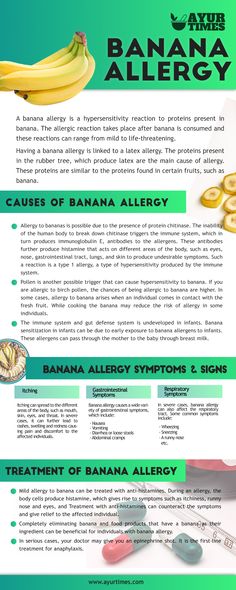
Severe forms of food poisoning are predominantly observed in young children with weakened immunity. The risk of developing complications against the background of intoxication increases with prematurity, malnutrition and dysbacteriosis in history.
If a child has been poisoned by poisonous plants, berries, lesions of the central nervous system are observed:
- inhibition of reactions;
- euphoria;
- hallucinations;
- impaired speech, vision;
- convulsions.
If the cardiovascular system is damaged by toxins, the heart rate speeds up or slows down, blood pressure decreases.
Mushroom poisoning is very dangerous for children. After eating a pale toadstool, indomitable vomiting, cholera-like diarrhea with impurities of blood in the feces begins. Other symptoms are intestinal colic, respiratory disorders, convulsions. Toxins adversely affect the liver, which leads to the development of toxic hepatitis.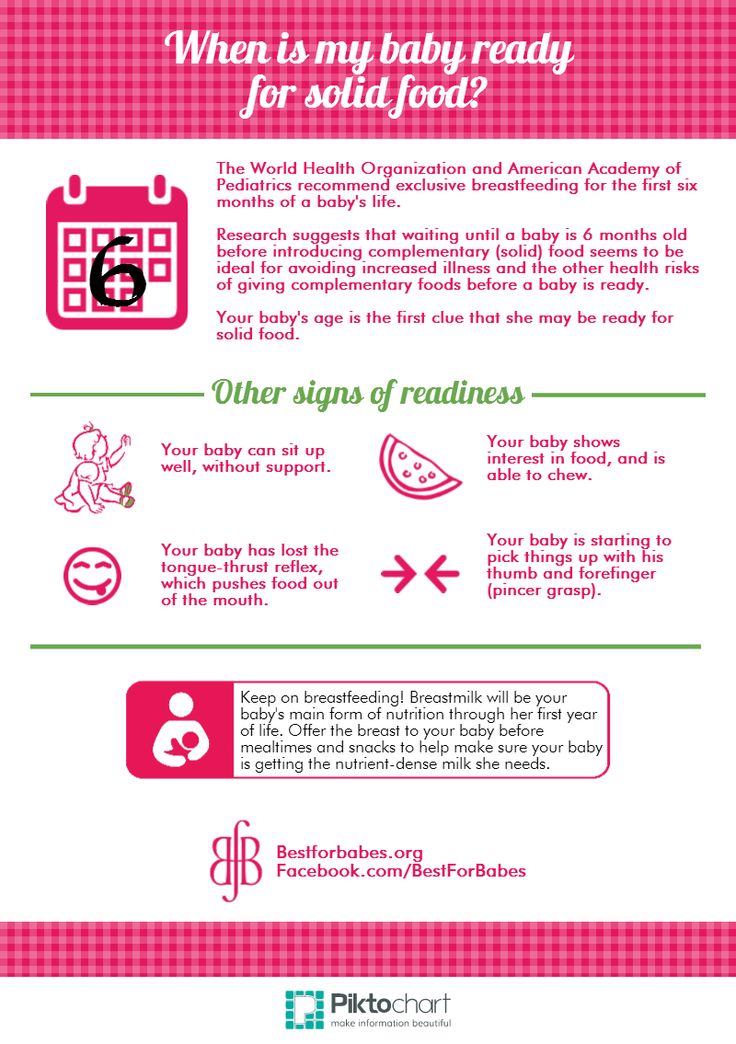 AT 90% of cases are fatal due to acute liver failure.
AT 90% of cases are fatal due to acute liver failure.
Signs of fly agaric poisoning are increased salivation, shortness of breath, severe vomiting, convulsions, bronchospasm, hallucinations, nystagmus or strabismus. But the mortality rate is less than 1%.
Botulism develops when poor-quality canned food is consumed. The toxin affects the nervous system, which manifests itself in the form of paralysis and paresis. Poisoning in children can cause the development of acute respiratory failure, heart rhythm disturbances. The first symptoms appear after 4-6 hours. Worries about pain in the epigastric region, nausea, vomiting, diarrhea. Sometimes there are problems with vision. When the respiratory system is affected, shortness of breath begins, the skin in the region of the nasolabial triangle turns blue, and arrhythmia develops.
First aid for child poisoning
Act immediately. Rules for first aid:
- In case of poisoning with mushrooms, berries, medicines, induce vomiting.
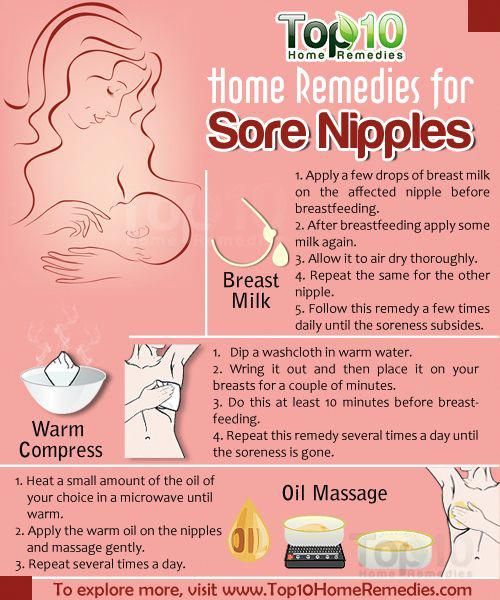
- Gastric lavage with clean water to remove toxins from the intestines. Babies should not do the washing themselves, as the child can inhale the vomit. Instead, you can do a cleansing enema. The volume of water for gastric lavage - 16 ml / kg for children 3-6 years old, over 7 years old - 14 ml / kg.
- Taking enterosorbents - these drugs collect toxins in the intestinal lumen, remove them with feces.
- More to drink. You need to drink in small portions, but often. You can give your child water with a weak saline solution, weak tea, mineral water without gas.
- Call a doctor.
Timely first aid will help to avoid the development of complications of poisoning.
In case of poisoning, children should not:
- give painkillers, drugs, drugs for vomiting and diarrhea;
- apply hot or cold compresses to the abdomen;
- use soda to induce vomiting, potassium permanganate to wash the stomach;
- give milk and dairy products.
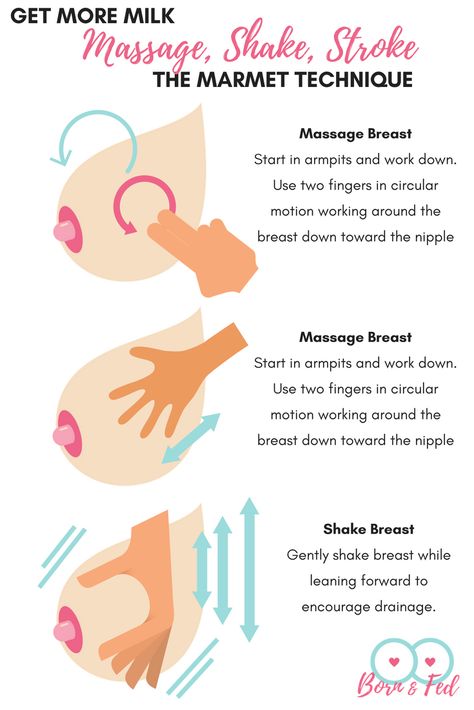
Diagnosis of food poisoning in a child
A pediatrician or an infectious disease specialist can diagnose food poisoning in a child. The examination begins with the collection of anamnesis, examination of the patient.
Specific diagnostic tests are prescribed to isolate the pathogen. Biomaterial - feces and vomit, gastric lavage, the remains of contaminated food. With a generalized form of infection, a blood culture is prescribed. Auxiliary methods - RIF, PCR, ELISA. Additionally, you may need to consult a neurologist, gastroenterologist, surgeon.
Be sure to carry out differential diagnosis to exclude acute gastritis, cholecystitis, pancreatitis, giardiasis, acute intestinal infection, inflammation of the appendix, meningitis. A blood test is prescribed to rule out a viral, bacterial infection, a stool test to detect infections caused by pathological bacteria.
How to treat
Treatment of poisoning in a child begins with the elimination of signs of dehydration. Apply oral, parenteral rehydration therapy.
Apply oral, parenteral rehydration therapy.
Auxiliaries:
- enzymes;
- sorbents;
- prebiotics to restore the balance of intestinal microflora;
- antimicrobials are necessary for severe toxicoinfection.
In case of toadstool poisoning, emergency hemosorption is performed to cleanse the blood of toxins.
Diet for child poisoning
It is best not to feed the child for 12-24 hours after poisoning. When vomiting stops, a sparing diet is indicated. Breastfed babies under one year of age need to skip a few feedings.
How to feed a child after poisoning:
- liquid porridge - rice, buckwheat, cooked in a mixture of equal amounts of water and milk;
- mucous soups;
- crackers;
- kefir;
- compotes;
- after a few days - vegetable puree, children's cottage cheese or kefir, yogurt without additives;
- gradually introduce meat and fish soufflé into the menu.
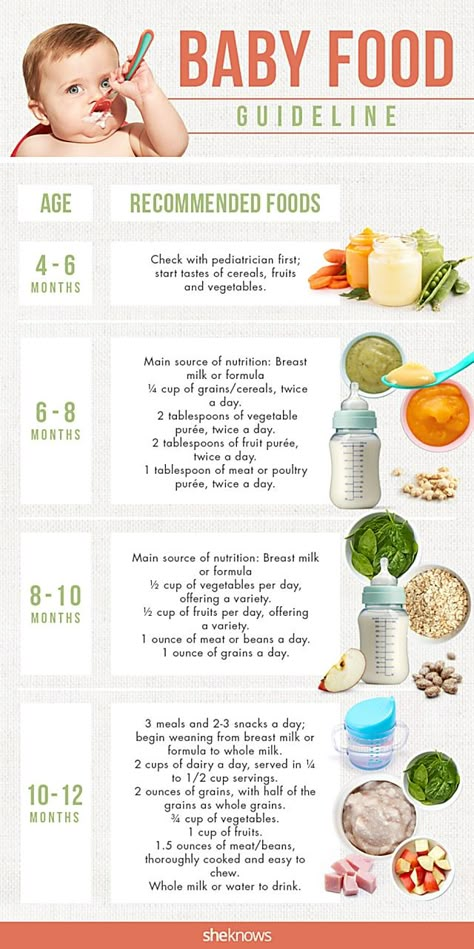
List of prohibited foods - pastries, whole milk, black bread, fresh white bread. You can not give your child pasta, chocolate, ice cream, chips, sweet carbonated drinks, wheat and barley porridge. From vegetables, cucumbers, tomatoes, cabbage are contraindicated.
The duration of the diet is 14 days.
Possible consequences of food poisoning in a child
Complications occur in case of severe poisoning, lack of correct and timely therapy.
Possible effects:
- dysbacteriosis;
- renal and hepatic insufficiency;
- disturbances in the functioning of the nervous and immune systems;
- chronic diseases of the gastrointestinal tract.
Prognosis and prevention
Poisoning in a child of mild and moderate severity ends in complete recovery.
Methods of prevention:
- properly store food, observe the temperature regime and other storage conditions;
- observe the rules of heat treatment, children should absolutely not be given raw fish, poorly fried meat;
- drink only boiled, purified water, do not swallow water when swimming in reservoirs;
- wash hands, vegetables and fruits thoroughly;
- store medicines, chemicals out of the reach of children;
- to tell children about poisonous mushrooms, berries, plants, the dangers of their use.
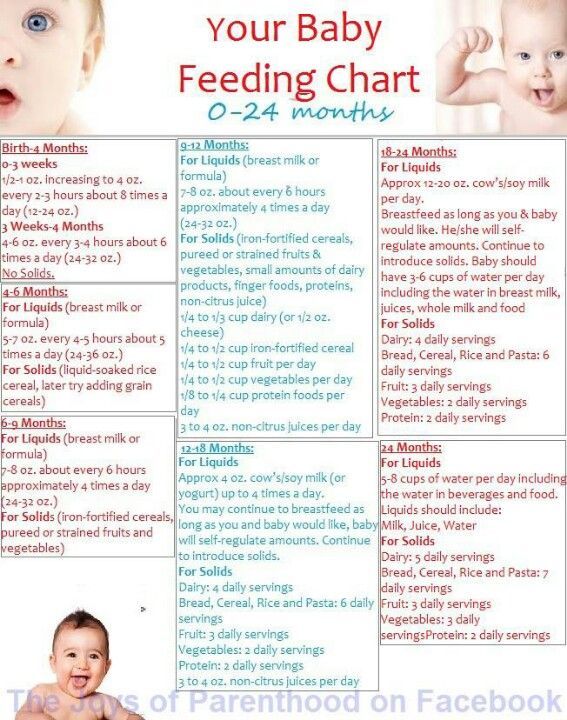
People who work in the kitchen in children's institutions should have regular medical check-ups. In the presence of pustular skin pathologies, respiratory diseases, signs of an intestinal infection, the worker is not allowed into the catering unit.
Treatment of food poisoning in Moscow
Food poisoning in a child is a dangerous condition, you should not self-medicate, you should immediately consult a doctor. Call our clinic, describe the symptoms, the patient's condition, the possible cause of the poisoning. The administrator of the "Miracle Doctor" center will write you to the doctor in the near future.
Q&A
Why is acute poisoning dangerous for a child?
Fever, vomiting more often 3–5 times, diarrhea in a child is a reason to immediately call an ambulance.
Poisoning in a child at any age leads to a breakdown of the immune system. Dehydration is very dangerous for babies. In children under 4 years of age with profuse vomiting and loose stools, the critical phase of dehydration can occur within a few hours.